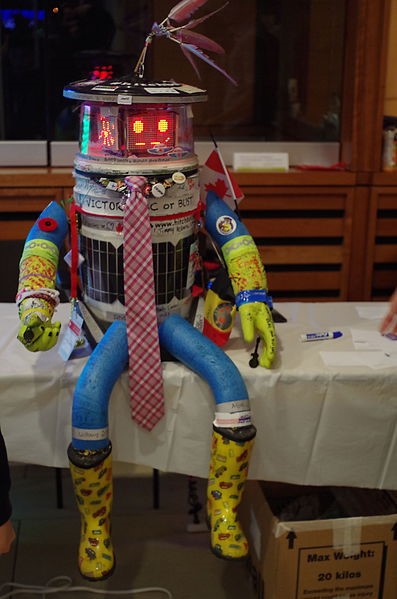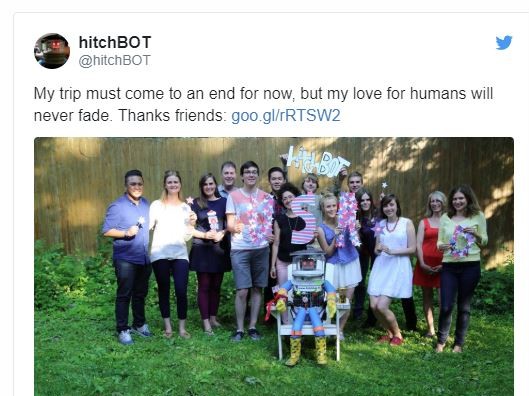The prospect of an artificial intelligence both fascinates and frightens us. Beth Singler notes in her podcast that, in AI, we are not encountering an intelligence alien to our own—we are trying to create one. The question I have long asked is “Why would we want to do this?” What are we really looking for in AI?

The simplest answer, the one many computer scientists might give, is that we are looking for machines that will do our work for us—both work we find tedious and work we find difficult. This is AI as Roomba, busily vacuuming our floors, or the Mars rover, going where no human can, at present, go. We look to machine learning to make sense of the endless reams of data collected by our devices, to find answers we might ourselves overlook. We hope driverless cars will ease gridlock, avoid drunk or distracted driving, and get us and our goods to the desired destinations. In general, as with any technology, we develop artificially intelligent machines to make our lives easier, safer, and longer.
In doing these tasks, AI takes on a part of our self-image, the image of ourselves as doers, an image captured in the first question we so often ask a new acquaintance, “What do you do?” Twentieth century scholars of Genesis such as Gerhard von Rad and Claus Westermann interpreted the image of God in which, according to Genesis 1, humans are created, precisely in these terms. We are God’s deputies on earth, sent here to act, create, and take responsibility over nature (not that we have been particularly good at the latter). We image God by doing His will and are judged by the fruits of our actions (Matthew 7:16). An AI busily doing tasks in our stead thus furthers this sense of image. But this approach to AI raises the obvious downside. If computers can do many, if not most, of the jobs humans now do, then, as the poet Wendell Berry asked, what are people for? Will humans lose their dignity? Indeed, how will we continue to function as God’s hands on earth if there is little left for us to do? Are we really nothing more than our jobs?
Systematic theologians come riding to the rescue with a different approach to the image of God, suggesting that what matters most is being in relationship. For Christians, this echoes the nature of a Triune God of Father, Son, and Spirit. For Jews, the prominence of relationship is evident in the multiple covenants God makes with his people throughout the Torah. An AI that takes on much of our work could leave us with more time to foster relationships, to be with those we love. Or not. Consider the stories we tell about AI in fiction or film, ranging from Asimov’s I, Robot and the lovable droids in the first Star Wars to recent films such as Her or Ex Machina. In each, the plot revolves around human relationships with the AI. Is this what we are ultimately looking for in AI, something to love that will love us back?
Above, the official trailer for Her. Spike Jonze’s 2013 film was nominated for five academy awards and won Best Original Screenplay.
We are made to desire relationship with something that is other to ourselves. Augustine famously prayed, “Oh God, you have made us for yourself and our hearts are restless until they rest in you.” Richard Forsyth and Chris Naylor, in The Hitch-Hiker’s Guide to Artificial Intelligence express this need for an Other as well:
It can get lonely being conscious in the Cosmos—especially with people like Copernicus and Carl Sagan to tell you how big it is. Of course we can talk to each other, we can write books, but we are only talking to ourselves. After all, we are all human. Only four prospects of allaying this loneliness exist: (1) Communicating with extraterrestrial intelligences. (2) Teaching animals to speak . . . (3) Learning the language of another species . . . (4) Building intelligent artifacts. . . It appears for the moment that if we want to contact a mind that is not housed in a human skull, we will have to build one.
But will relationship with an AI be satisfying? There are many who believe they could be. MIT sociologist Sherry Turkle notes some hope to find in a robotic companion friendship or love that is “safe and made to measure.” But relationships are not meant to be safe. They are meant to stretch our boundaries, to test our preconceived notions, to draw us out of our petty preoccupations and make us grow. In his seminal work, I and Thou, Martin Buber describes two basic stances toward the world, that of I-You or of I-It. Which stance we take determines how we treat others. it also determines who we are, for the I of I-You is different from the I of I-It. While a relationship with an AI seems to expand the world of I-You, the danger lies in our using it as a template for relationship with other persons, expanding instead the world of I-It. If our primary experience of love is one that we can turn off or turn away from at will, might we not wish to do the same with the people in our lives?
We have an increasing flock of AIs to do our work. Singler is, however, agnostic regarding the question of whether we might ever have a truly conscious self-standing AI with whom we can relate. I am dubious. But whether it is possible to develop one or not, I believe AI is bound to be a disappointment if we look to it for the I-Thou relationships that make us whole.



